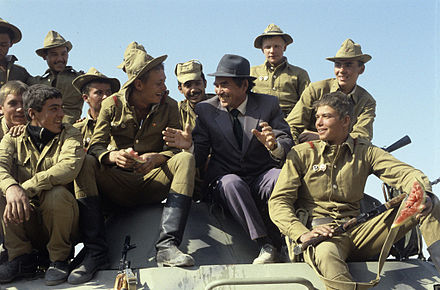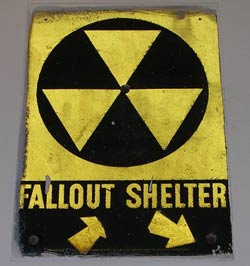
By Natylie Baldwin, Oped News, 10/20/21
“The Afghan government was supporting Islam but Saudi Arabia wanted to spread radical Islam into Central Asia. They also wanted to control future oil pipeline routes. Pakistan wanted to legitimize its occupation of Afghan lands stolen by the British Empire in the 19th century and control events in Kabul. Communist China wished to curry favor with the United States and expand its control over its Muslim Xinxiang province. And the U.S.? The U.S. wanted to f*ck the Soviet Union for Vietnam and roll back the Bolshevik revolution of 1917 once and for all.” (p. 110)
Afghanistan has been in the news recently due to the end of the U.S.’s formal 20-year war there. However, there is a much longer history for the U.S. in that unfortunate nation that has been caught in the middle of imperial rivalries and power plays. That history has largely been obscured since the end of the Cold War. Paul Fitzgerald and Elizabeth Gould have entered to shed light on this history in The Valediction, a book they describe as a novelized memoir.
The book does read like a novel with a fast-paced and compelling narrative that keeps the reader engaged and wanting to dig into the next chapter to see what happens. Though the book weaves in some longer history, the main focus is on the journalistic odyssey of the authors, which started in 1981 with a trip to Afghanistan to get on-the-ground information on what was really happening in the war that had been framed in 1979 by President Jimmy Carter as the greatest threat to world peace since WWII. The Reagan administration had subsequently intensified the rhetoric against the Soviet Union about the Afghan intervention. It was convenient for both the Carter and Reagan administrations that western journalists generally had little access to Afghanistan within a month of the invasion due to the Afghan government kicking them out under accusations of lying. This led to Americans having scant information about what was really happening there.
The story of how co-author Fitzgerald said he managed to get access to Afghanistan elicited a grin from this writer. He simply looked up who the UN representative for Afghanistan was in that ancient 20th-century artifact known as the phone book and went from there. Needless to say, after the first trip, it was clear things were totally unlike the narrative that was being pushed by the U.S. government and mainstream media.
A war in Afghanistan was, by all rational measures, not in the Soviets’ interests. There had been every indication by the late 1970s that the Soviets had wanted progress on arms control negotiations and a continuation of the de’tente policy. There have been suggestions that Brezhnev did not have consensus support in the Soviet government for the invasion. The authors and some others suspected that the Soviets were provoked into invading.
Many readers are likely familiar with Zbigniew Brzezinski’s infamous boast in a 1998 interview with Le Nouvel Observateur that, as Carter’s national security advisor, he’d helped goad the Soviet Union into invading Afghanistan, which he described as “the opportunity of giving to the USSR its Vietnam war.”
Central to provoking the Soviet invasion, the book argues, was the assassination of Adolph Dubs, the U.S. ambassador to Afghanistan. Indeed a good portion of the book revolves around the authors’ investigation into unraveling the mystery surrounding the murder, which uncovered conflicting reports from representatives of the State Department, the CIA and DEA [Drug Enforcement Agency], and the KGB. As the authors ask:
“Who would kill an ambassador? Not a rival superpower trying to get the American Congress to sign a nuclear arms deal they’d desperately needed. And certainly not a third-world backwater desperate for U.S. aid and recognition. Only someone trying to provoke retribution. And who would want that retribution? Zbigniew Brzezinski… What was a known Russia-hater doing in the Carter administration in the first place and why had the “Peace President” elevated his role to cabinet level?” (pp. 64-65)
Dubs, who had significant diplomatic experience with the Soviets and more nuanced views, was working at cross-purposes with Brzezinski. He believed he could diplomatically get then-Afghan-leader Hafizullah Amin to move away from any loyalty to the Soviets. To further this project, he’d had fourteen secret meetings with Amin, in order to avoid sabotage by Brzezinski. Dubs thought the kind of destabilization favored by Brzezinski in Afghanistan would provoke the Soviets and was dangerous. According to an interview Fitzgerald conducted with Afghanistan expert Selig Harrison:
“…I met him [Dubs] out there that summer. He was alone and I had a long evening with him. He came out with a very sophisticated conception of what he was going to do, which was to try to make the US-educated Amin into a kind of Tito, in other words, detach him. Dubs knew how subtle an operation it had to be. He had no illusions it could be done quickly. He would still be pretty close to the Russians, but he’d have more freedom of action and it would be enough to make it safe from our point of view. He met with Amin fourteen times and quickly understood that he was not a loyal Communist. He even bragged that the Soviets needed him more than he needed them. But the trick would be to keep a back door open to American influence while not triggering Soviet countermeasures… [the Soviets] were greatly alarmed because they thought Amin might be a CIA agent. And Brzezinski was actively promoting an aggressive covert anti-Soviet Afghan policy without the State Department’s knowing much about it. So it was extremely dangerous.” (p. 74)
Though the machinations around Afghanistan were started under Carter and Brzezinski, they were continued and expanded under Ronald Reagan, who had Richard Pipes – another Russophobic ideologue with a Polish background – on his national security council. By 1983, it was becoming clear to those who had genuine knowledge of what was occurring in Afghanistan that the Soviets wanted to get out and were willing to allow a coalition government after getting rid of Amin’s successor, Babrak Karmal, whom they’d grown to greatly distrust. But the U.S. didn’t seem at all interested in a Soviet exit, rebuffing Soviet overtures to negotiate a 6-month withdrawal in which they could save face in exchange for the U.S. giving up its support for the Islamist insurgency. Instead the Reagan administration announced increased support for the extreme nihilistic Islamist insurgents that were fighting the Afghan government.
“The irony was sublime. The U.S. wanted to overthrow a Communist government that the Kremlin viewed as a middle class bourgeois disaster with no support from the population. And the Kremlin was right. Communism couldn’t exist without a working class, and Afghanistan simply did not have one. But that trivial detail didn’t matter to Washington.” (p. 86)
The authors’ efforts to get the real story on Afghanistan were not exactly rewarded by the mainstream media. Pitches to CBS and later ABC were met with attempts to significantly downplay the authors’ actual reporting or kill it since it didn’t fit the narrative established by “Gunga Dan” Rather, a narrative that the White House wanted reinforced: Soviet soldiers were all over Afghanistan, brutalizing civilians and perpetrating their own dirty little Vietnam-style adventure on behalf of an expansionist agenda. Each pillar of this narrative was contradicted by the authors’ research as well as observations and interviews with an array of individuals in Afghanistan.
Often lost in the coverage of Afghanistan and the wars that have been fought there by empires is the Afghans themselves who had their own interests. Those interests included finding ways to modernize their country and improve the quality of life for their citizens. Various Afghan leaders of the 20th century attempted to pursue these objectives under a combination of nationalist and socialist political influences – the details of which would be shaped by the country’s unique geography and culture. But these projects were always tragically derailed by outside hegemons.
As noted in the epigraphic quote to this review, this had gone back at least as far as the British and the sabotage of Afghan society was executed by many opportunistic players during the Cold War. In an interview with Fitzgerald, China was cited, in addition to the U.S. and Pakistan, as a country that had provided training and/or arms by a former fighter for U.S.-backed Islamist terrorist Gulbuddin Hekmatyar.
There are some things in the book that readers will have to decide for themselves the degree of importance and plausibility to assign to, such as certain connections made to rivalries among royal families and elite institutions from hundreds of years back. Another involves the man who is referenced in the subtitle of the book: Desmond FitzMaurice. He is described as a composite character and, interestingly, he is also the character that seems the most fantastical. It is these aspects that I imagine contribute to classifying this book as a novelized memoir. However, there are many other named people the authors discuss as providing important pieces to the Afghanistan puzzle that, along with the extensive research and contextual on the ground experience during the period in question, make for an interesting and informative read.

